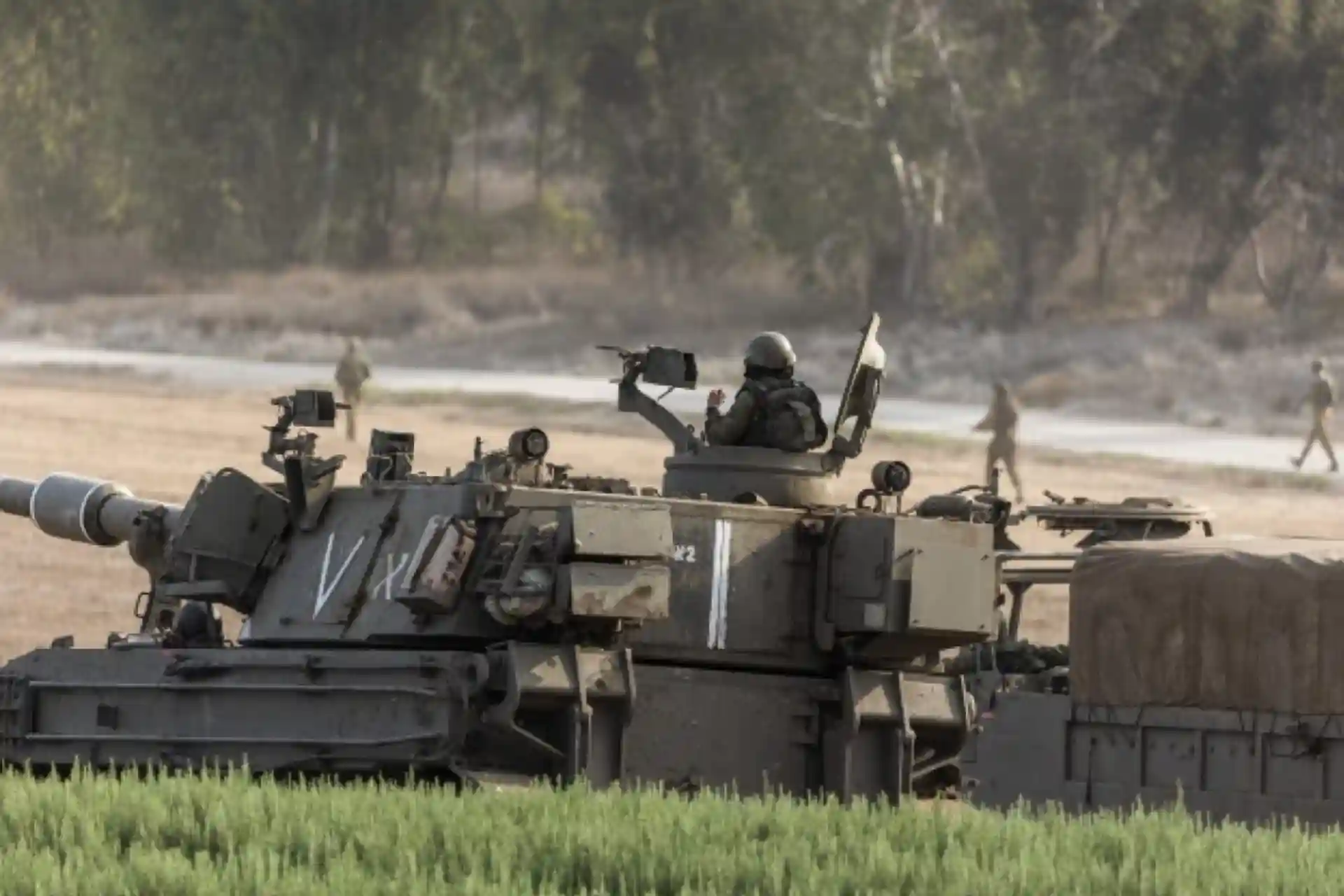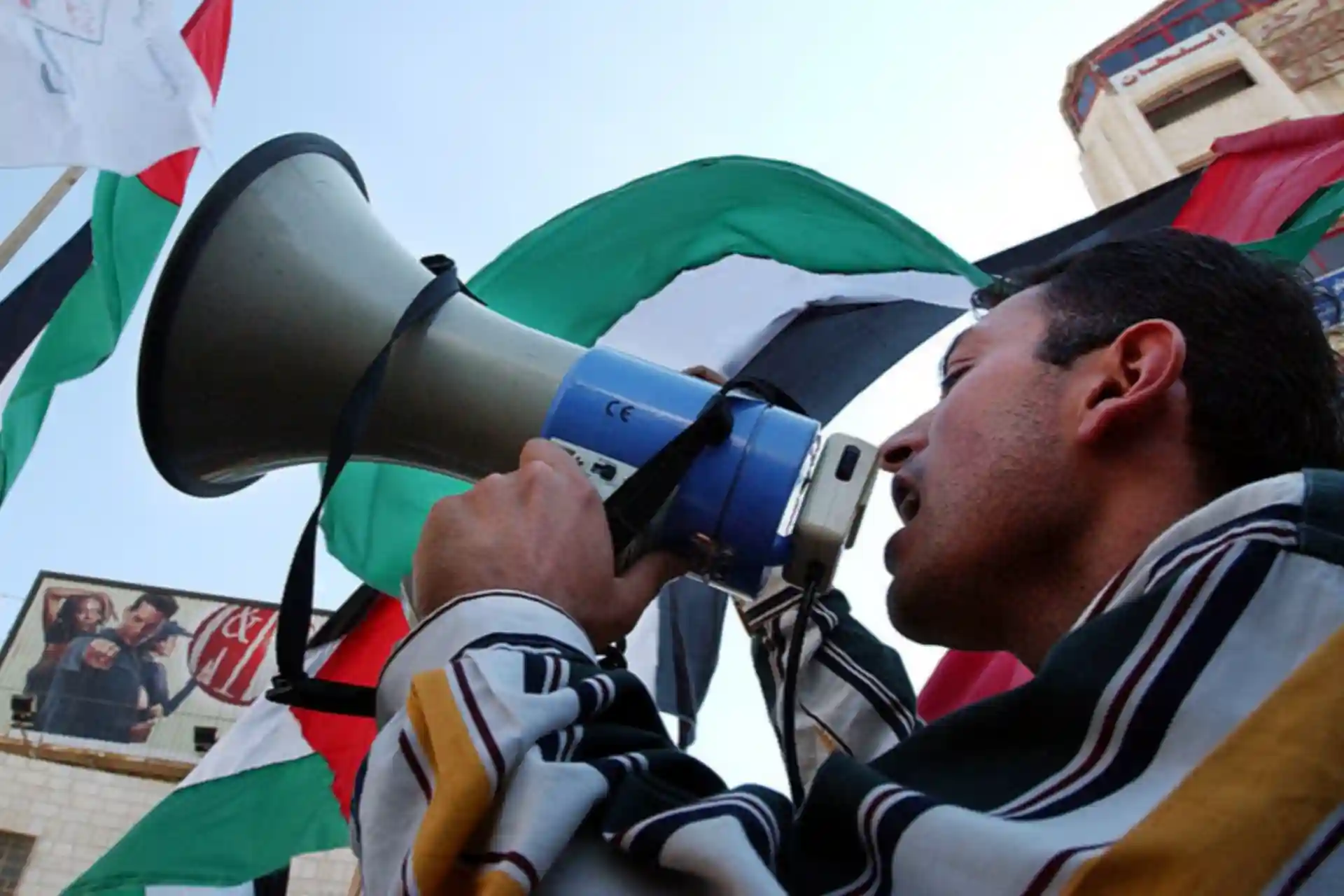Is the Israel-Hezbollah conflict going to war?
Is the Israel-Hezbollah conflict going to war?
Due to the conflict between Israel and Hamas, the brutal killing of Palestinians, the genocide of young children, the elderly and women has aggravated the situation in the Middle East. It even raised the possibility of the involvement of Lebanon's influential Hezbollah movement in the conflict. True, so far the conflict between Israel and Hezbollah is limited to shelling the border areas. But there is no guarantee that the conflict will not lead to full-scale military action, such as the 34-day war in July 2006 that led to Israel's defeat.
Unfortunately, there has been no peace in the Middle East for more than a century. All this was caused by the defeat of the Ottomans in the First World War and the disintegration of the empire in 1923. As a result, Britain took control of that part of the Middle East that had previously belonged to them, that is, Palestine. The region was inhabited by a Jewish minority, an Arab majority and several other small ethnic groups. Tensions between Arabs and Jews began to grow after the international community tasked Great Britain with providing a "national home" for the Jewish people in Palestine. It was related to the 1917 Balfour Declaration, a promise made by British Foreign Minister Arthur Balfour, who was originally Jewish, to the British Jewish community. This declaration was included in the British mandate and approved by the newly formed League of Nations in 1922. For the Jews, Palestine is their ancestral home, but the Arabs considered these lands their own and opposed the plan. After the secret Zionist conference in the 19th century, Jewish immigration increased between the 1920s and 1940s, especially after the Nazi holocaust in World War II. In 1947, the UN voted to divide Palestine into two separate states for Arabs and Jews. Jerusalem was supposed to remain an international city. However, due to Israel's attempts to expand the territories, the Palestinian state has not yet been established. On the contrary, Israel expanded its territories at the expense of Syria, Egypt, and Lebanon, remaining in Palestine. The Golan Heights were taken from Syria, the Sinai Peninsula from Egypt, and the southern regions from Lebanon. As Israel's occupation policy, the Hezbollah resistance movement was born in Lebanon.
Hizbollah organization, which considers military jihad and Israel's right to exist like Iran as its main goal, has been attacking TsAXAL troops and their facilities in Lebanon since 1980 (in some sources 1982, in some sources 1985) since its establishment. In addition to contributing to the liberation of Lebanon, the organization is also known for carrying out acts of subversion against the United States and Israel. These include the bombings involving a truck driven by a suicide bomber in Beirut that killed many US sailors, the 1992 Israeli embassy bombings in Argentina, and the 1994 Jewish community center bombings. Israel is actually the cause of his birth. Hezbollah rose to its feet in 1982-1983 with the help of Iran as a liberation movement following the Israeli invasion of South Lebanon. In 1992, it took part in the Lebanese elections for the first time and has been one of the largest political forces in the country for the past 30 years. Hezbollah controls Lebanon's Shia-majority areas of southern Beirut, southern Lebanon and the eastern Bekaa Valley. "Hezbollah" has a strong relationship with the regime of Bashar Assad of Syria and with Iran. During the civil war in Syria, he appeared as an ally of Bashar Assad and gave about 10,000 of his fighters to him. It was because of Hezbollah's attacks that TsAXAL was forced to withdraw from half of the occupied territories of southern Lebanon in 1985. The United States and France have also withdrawn their peacekeeping forces from Lebanon due to incessant bombing attacks. On May 24, 2000, Israel completely withdrew its forces from southern Lebanon, ending Israel's long-standing military involvement. The organization later announced that Israel still occupied a small area of Lebanon called Shebaa Farm. According to the UN decision, the area is not part of Lebanon, but part of the Israeli-occupied Syrian Golan Heights. Hezbollah, which opposes this, has been attacking posts in Shebaa with the approval of Syria. But he considers the main goal to be the destruction of the state of Israel. According to Hasan Nasurullah, the leader of the party, he is loyal to Iran, which is arming, financing and encouraging him. Tehran sends weapons to this political and military organization by plane to Damascus and through it to Lebanon. Iran and Hezbollah are also engaged in supplying weapons to Yemen, Africa, Iraq and other warring countries. In order to achieve financial independence, it was also discovered that he engaged in crimes such as drug, diamond and human smuggling, money laundering. In 2022 alone, $1 billion was generated from the drug trade, which is equivalent to the financial subsidy that Iran provides each year.
Recently, the leader of the movement, Hassan Nasrullah, said in a long-awaited speech that for every representative of the civilian population killed in Lebanon, someone will be killed on the Israeli side of the border. However, the leader of "Hezbollah" did not announce the opening of war against Israel, contrary to the expectations of many. The sheikh admitted that the movement was financed and operated by Iran, but he said that Tehran does not control Hezbollah, nor does it give orders on whether to go to war. One thing to keep in mind is that if Hezbollah were to go to war, Israel would certainly face more serious resistance than it is seeing now. Because the Israeli defense forces, which have been sitting in one place in Gaza for three months, cannot stop the powerful "Hezbollah" army on the border in the north of the country. Moreover, according to military experts, Hezbollah may have 150,000 missiles and at the same time more than 100,000 soldiers, and Hamas cannot come close to its ally in this regard.
In 2006, the movement attacked a border post with Israel and captured two Israeli soldiers, sparking a war. At that time, the hostilities lasted for more than a month, and more than 1,000 people were killed on the Lebanese side, most of them civilians. In Israel, 121 soldiers and 44 civilians were killed. The desire of the Israeli leadership, which aimed to destroy the militants in Lebanon in one blow, did not come true easily. The war in Lebanon lasted until August 14, 2006. As if the Israeli army suffered losses in the fight with Hezbollah, it was forced to make peace with them. The ceasefire agreement was perceived as a defeat by the Israeli public. Because the promises were not fulfilled during the military operations, which started with alarming voices and great appeals to the whole world: the hostages were not released, Hezbollah was not crushed. On the contrary, the Lebanese economy has lost billions of dollars and hundreds of innocent people have been killed. No matter how much the country's government tries to distract the population from the issue of the war in Lebanon, this topic remains the most painful point of the Jewish community. After the public outcry grew, the government was forced to create a special commission of inquiry into the war in Lebanon.
On the other hand, since then, Lebanon has not been able to get out of a deep crisis: the economy collapsed, the political system collapsed. Added to all this was the terrible explosion that took place in the port of Beirut in 2020. In this situation, the Lebanese government is calling for the movement to be suppressed. Many Lebanese are worried that Hezbollah will attack Israel, because Lebanon may also be drawn into the war. "Every Lebanese has the right to be afraid of war, this is normal, no one likes war. Tell the establishment in Israel to stop the aggression. Then the field of military operations will not expand," said the deputy leader of the movement, Sheikh Qasim. Experts believe that if the movement joins the war, the losses will be huge. Note that the seemingly intractable US and its allies are unable to defeat the Houthis in the Red Sea, and Israel is unable to defeat Hamas in Gaza. So, if a big war breaks out on the Israel-Lebanon border, the current events in Gaza will become "out of the blue". All Israelis have to sit in bomb shelters. Flights and sea trips are cancelled. Hezbollah can hit military targets in Israel with its powerful missiles. In response, Israel seeks to annex all of Lebanon.
For now, arch-enemies Israel, Iran and Hezbollah are refraining from drastic actions. But this does not necessarily mean that the war will not escalate. Maybe no one is intentionally escalating the conflict, but it is possible that someone made a mistake.
All actors have their own interests in the region. The US wants to maintain control over oil and trade routes in the Middle East and the Persian Gulf. Iran has its own main goal in the region. First, it wants to maintain its positions in Syria and Lebanon, thereby keeping open the supply route of missiles to its allies in the region. Second, it intends to further strengthen the capabilities of existing missiles in the hands of Hezbollah and Hamas. With this, he wants to destroy the potential of Israel to launch possible military strikes on Iran. Thirdly, Iran wants to establish itself as a military player by opening a new front against Israel, using the sphere of influence gained by using the Assad regime in Syria. But he cannot openly attack Israel. In this case, the USA, Britain and NATO countries will attack Iran. As a result, there is a possibility of the disintegration of Iran. In Iran, 30 million Azerbaijanis may want to return to their historical homeland, and both Kurds and Baloch may start fighting for independence. Tehran does not want this. Therefore , Israel views the desire of the Islamic Republic of Iran to build nuclear facilities, which enshrines the elimination of Israel from the face of the earth, as an attempt to acquire nuclear weapons. Israel is not silent either . He has been resisting the activities of the Iranians throughout the region tooth and nail. And Israel's military intelligence is giving serious blows to the high-ranking military in Syria and Lebanon, where the Iranian military has appeared. Convoys, weapons depots, drone bases and industrial areas linked to Iran are regularly shelled. But these are only tactical successes. From a strategic perspective, Israel may be slowing down Iran's actions somewhat, but there are still no signs that Tehran has given up on its ambitions. External players are also not able to divert Iran from its direction. It has long been known that the US does not like to interfere in open games in the Middle East. Moscow's promises to persuade Syrians not to fall under the influence of Iran and its allies turned out to be far from reality. This is evidenced by the increase in Israeli airstrikes in Syria after Israel's secret consultations with Russia and the United States. And the threat of a major war is getting closer and closer. It's like a famous movie situation: the hero manages to defuse a car bomb at the last moment. Similarly, the ticking clock between Israel and Hezbollah is ticking. But time will tell whether it will be neutralized in the final moments. However, US strategic bombers are increasingly being sent to Israeli territory. The Navy is on the prowl in the Persian Gulf and the Red Sea. And the US congressmen are demanding direct strikes on Iran itself. After the missile attack on the US military on the Syrian-Jordanian border, the threat of military airstrikes by Israel and the US air force against Hezbollah and even Iran is increasing. In our opinion , the Pentagon can kill high-ranking Iranian military personnel or attack important military facilities. But he could not dare to declare an open war. This would create a crisis that would hit both the US economy and the world economy. Oil prices will rise sharply. There is a high probability that the US and Israel will strike the positions of Iran and its proxy Hezbollah in order to distract the public after their failure to destroy Hamas.
Abduvali Soyibnazarov, political commentator



